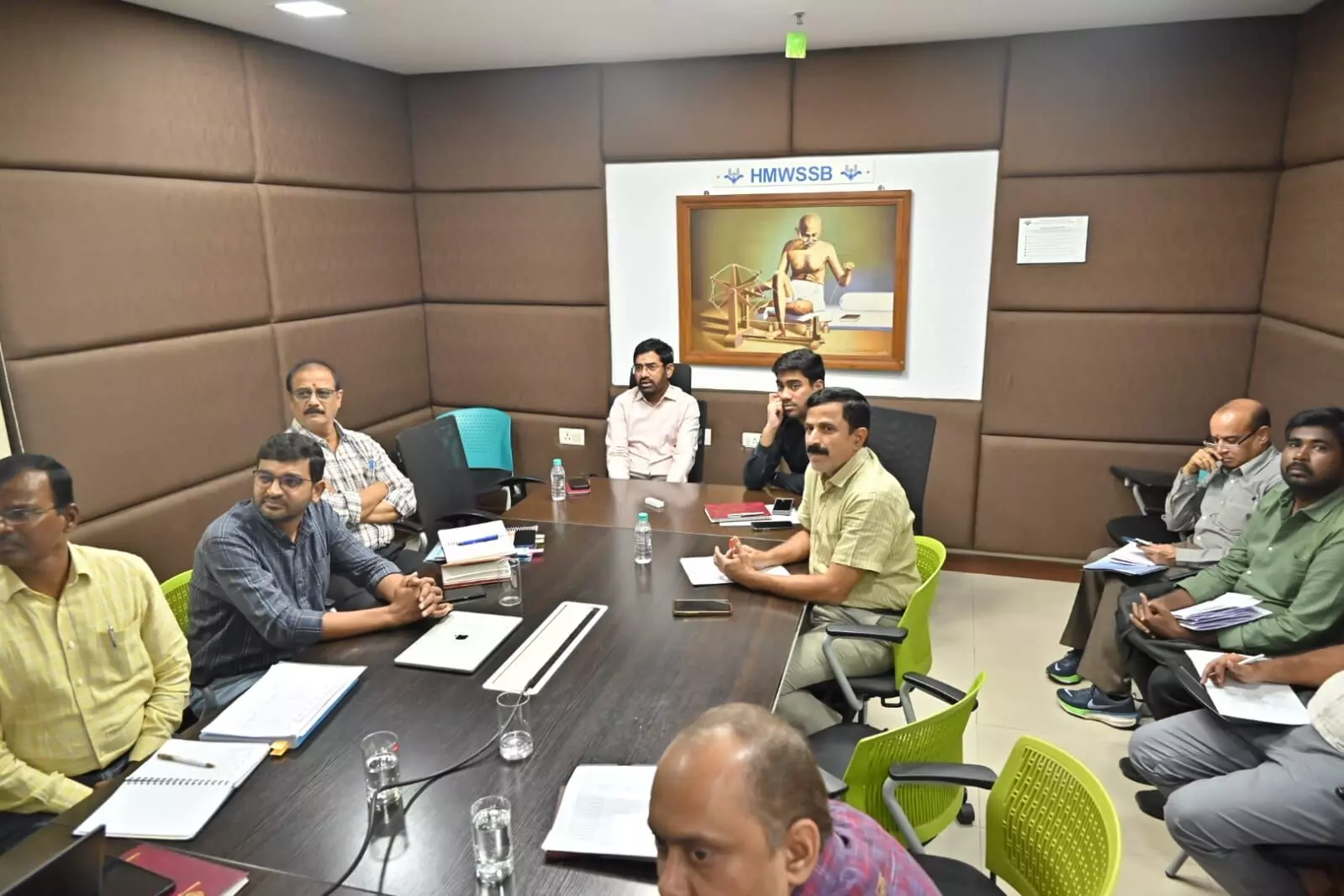Hyderabad: The Hyderabad Metropolitan Water Supply and Sewerage Board (HMWSSB) is exploring advanced smart valve and meter technologies as part of its effort to modernise the city’s drinking water distribution system and ensure accountability for every drop supplied.
Only 35% of 15,000 small and large valves are regularly operated
HMWSSB Managing Director Ashok Reddy, along with Executive Director Mayank Mittal, held a review meeting here with IT and revenue officials at the board’s head office to discuss the implementation of these technologies.
Officials informed that there are nearly 15,000 small and large valves in the city’s water distribution network, but only about 35 per cent are regularly operated. The MD instructed officials to study the feasibility of automating at least 1,000 valves on a pilot basis to enhance operational efficiency and reduce manual intervention.
Smart meters to account for every drop
He also directed the team to identify suitable technologies to install smart meters at reservoir outlets and bulk connection points. This, he said, would help in accurately measuring the quantity of water being supplied and ensure no wastage goes unnoticed.

Integrated control room planned
The MD further proposed establishing a control room at the head office to operate, regulate and monitor valves under an integrated system. He emphasised that smart meters should be linked to this system to provide real-time data on their performance, water quantity, quality, and billing information.
Safety benefits of smart valves
Managing thousands of valves across the city requires significant manpower. Many valves are located along busy roads, and operating them manually poses risks to linemen, with some accidents even resulting in fatalities in the past.
To address these concerns, the board has experimented with smart valve technology at Sanathnagar, which enables remote operation through a mobile app using internet-based communication. Officials noted that the pilot project has been successful so far.
Solar-powered and efficient
This technology not only allows remote valve operation but also provides data on water quality, quantity and chlorine levels. The smart valves operate entirely on solar power with battery backup, ensuring uninterrupted functioning without power dependency.
Officials said that expanding this technology across the city would enhance safety for field staff, improve efficiency, and help the board in achieving better water management.







